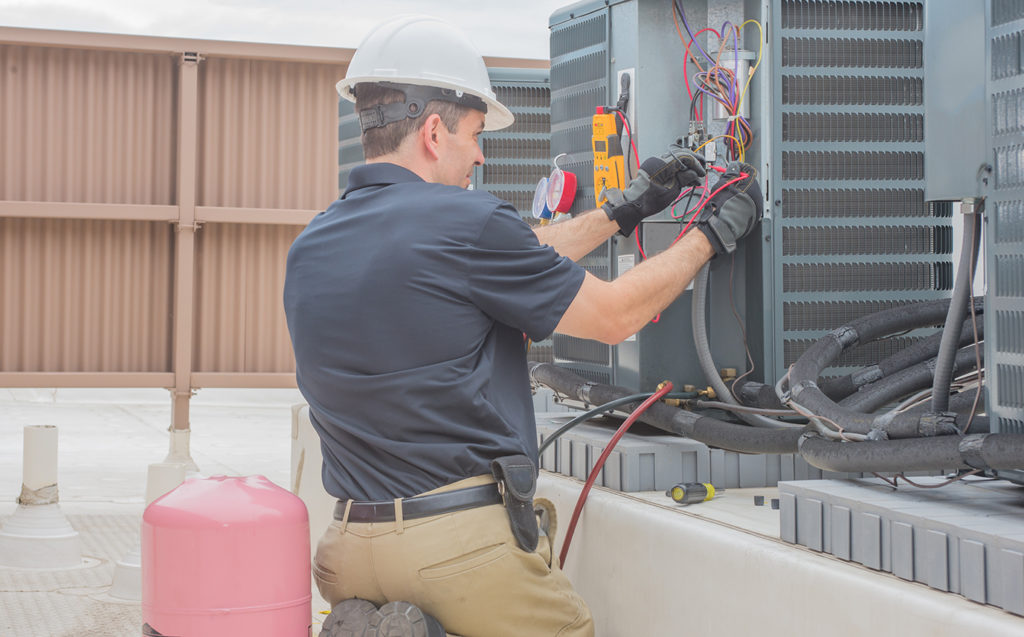Heating, air conditioning, and refrigeration mechanics and installers typically do the following:
- Install, clean, and maintain HVACR systems
- Install electrical components and wiring
- Inspect and test HVACR systems and components
- Discuss system malfunctions with customers
- Repair or replace worn or defective parts
- Recommend maintenance to improve system performance
- Keep records of work performed
Heating and air conditioning systems control the temperature, humidity, and overall air quality in homes, businesses, and other buildings. By providing a climate-controlled environment, refrigeration systems make it possible to store and transport food, medicine, and other perishable items.
Some HVACR technicians specialize in one or more specific aspects of HVACR, such as radiant heating systems, solar panels, testing and balancing, or commercial refrigeration.
When installing or repairing air conditioning and refrigeration systems, technicians must follow government regulations regarding the conservation, recovery, and recycling of refrigerants. The regulations include those concerning the proper handling and disposal of fluids and pressurized gases.
Some HVACR technicians sell service contracts to their clients, providing periodic maintenance of heating and cooling systems. The service usually includes inspecting the system, cleaning ducts, replacing filters, and checking refrigerant levels.
Other workers sometimes help HVACR technicians install or repair cooling and heating systems. For example, on a large air conditioning installation job, especially one in which workers are covered by union contracts, ductwork may be installed by sheet metal workers, electrical work by electricians, and pipework by plumbers, pipefitters, and steamfitters. Boiler systems are sometimes installed by a boilermaker.


